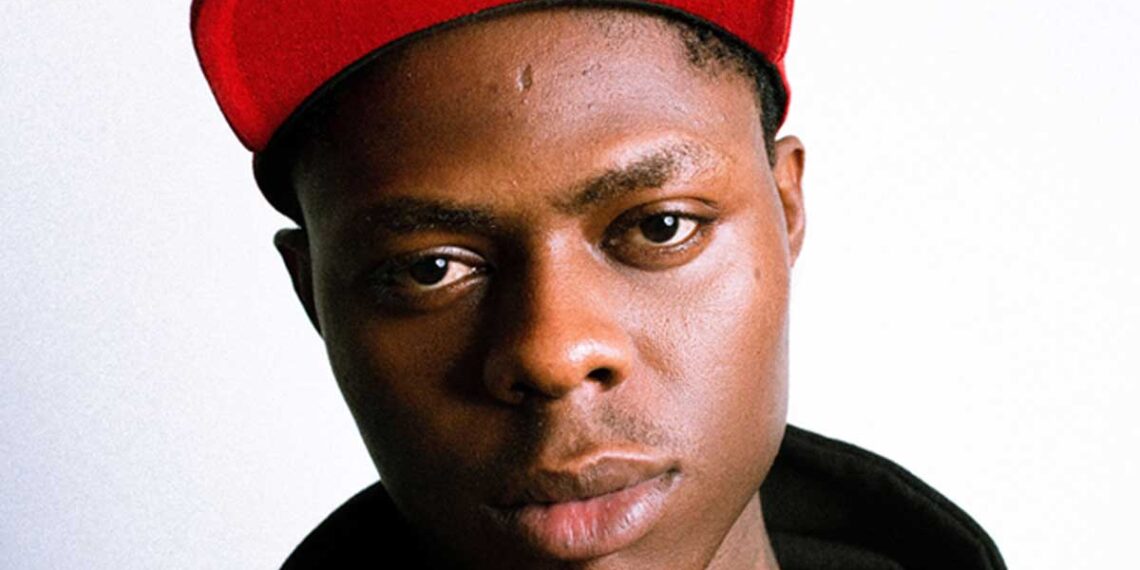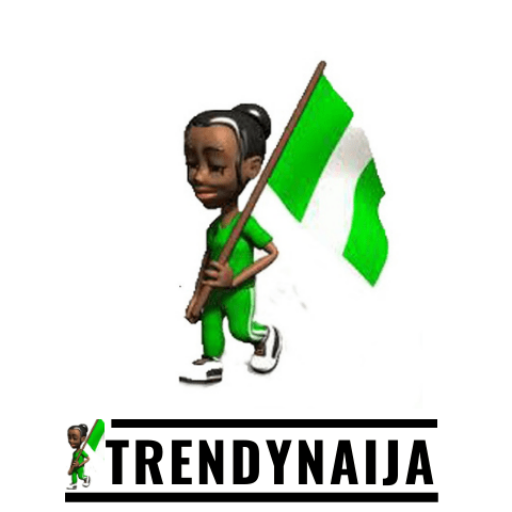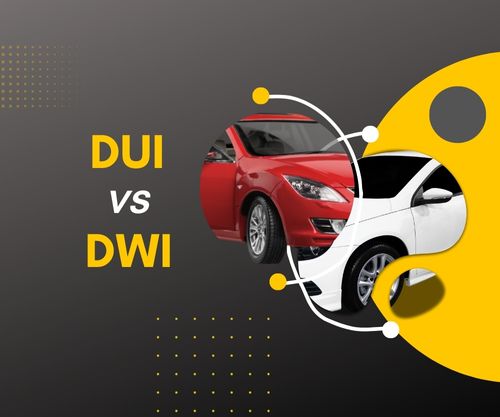Introduction

Mohbad: A Victim of Social Media Influence?
The tragic death of Nigerian singer Mohbad has sparked a debate about the role of social media in amplifying important issues and demanding justice. Was Mohbad’s death a result of alleged bullying? Or was it as a result of negligence on the side of the Police Force? Or carelessness on the side of the hospital? Or was it simply a tragic accident?
In this article, we will explore the Mohbad case in more detail and examine the role of social media in shaping public opinion and influencing our behavior, and how social media played a role in the recent move for justice for the late Nigerian singer Mohbad with the hashtag #justiceformohbad. We will also discuss the challenges and ethical considerations of social media influence.
We want to understand how social media makes some topics really important and how it can even change what people think. To do that, we’ll look at how famous people and creative folks on social media play a big role in this. We’ll also discuss some problems that come with all this, like how sometimes, we see news that isn’t true, and how our privacy can be at risk.
In the rest of this article, we’ll take a closer look at how social media works. We’ll use real examples and easy-to-understand ideas to show you how it’s changing the way we all think and talk about things online. So, get ready to explore the fascinating world of social media and trending topics with us!
Role of Social Media Platforms
Social media platforms are like digital playgrounds where people from all over the world come to share their thoughts, pictures, and stories. But they’re more than just fun places to hang out. They have a big role in what becomes popular or “trends” online.
Imagine you have a favorite social media app, like Instagram. When you scroll through your feed, you see lots of posts from your friends and even famous people. These posts can be about anything: cute cat videos, exciting travel photos, or important news.
Here’s where it gets interesting. Social media platforms have the power to decide what shows up on your feed. They use special computer programs called algorithms to figure out what you might like to see based on what you’ve liked or talked about before. So, they help make certain things more visible to you, like posts about trending matters.
Real-time Information Dissemination
Now, let’s talk about “real-time information dissemination.” It sounds fancy, but it’s pretty simple. It means that social media is lightning-fast at spreading information.
Imagine a big news event happens, like a natural disaster or a major sports game. Before, you might have to wait for the newspaper the next day or the evening news on TV to learn about it. But with social media, you can find out what’s happening almost instantly.
People all around the world can share photos, videos, and updates about what’s going on. So, when something important is trending, it spreads like wildfire on social media. This can be really helpful to stay informed about what’s happening right now, but it also means we need to be careful about believing everything we see, as not everything on social media is true.
In a nutshell, social media has a big influence on what topics become popular and how fast information travels. It’s like a giant conversation where everyone’s sharing their thoughts and making certain things more important than others. That’s why it’s such a powerful tool when it comes to trending matters.
Influencers and Trendsetters
Celebrities and Opinion Leaders
When we talk about “influencers,” we mean people who have a big following on social media. These could be your favorite celebrities, like actors, musicians, or athletes. But they can also be regular folks who have become really popular because of what they share online.
Think of influencers as trendsetters. When they talk about something or post a picture or video, lots of people see it and pay attention. The case of Mohbad is a case-study; the posts and opinions of celebrities and influencers contribute to the general information consumed by the public. It’s kind of like when a famous person wears a new style of clothing, and suddenly, everyone wants to wear the same thing.
Opinion leaders are similar. These are people who are really respected in a particular area, like technology or fashion. When they say something, people trust their opinion and might follow their lead. So, both influencers and opinion leaders have a big say in what becomes popular on social media.
Viral Content Creators
Have you ever seen a video or a meme that seems to be everywhere all of a sudden? That’s what we call “viral” content, and it’s a big deal on social media.
Viral content creators are the clever people who come up with these videos, images, or stories that spread like wildfire. They know how to make things that make us laugh, cry, or think. And when we like something so much that we want to share it with our friends, it goes “viral.”
Sometimes, viral content is funny cat videos, and other times, it’s about important issues like climate change or social justice. These creators have a real knack for getting our attention and making us want to share their stuff with others. Videos posted by viral content creators gain more attention and are easily passed on to the public, as they have more visibility, using the issue surrounding Mohbad as a case- study.
In a nutshell, influencers, celebrities, opinion leaders, and viral content creators are the folks who can make things famous on social media. They have the power to influence what we talk about and what trends online, just by sharing their thoughts and creations with us.
The Mohbad case: A trending mystery
On September 12, 2023, Nigerian singer Ilerioluwa Olademeji Aloba, popularly known as Mohbad, died under mysterious circumstances. His death sparked outrage and speculation, with many fans and observers accusing his former record label boss, Naira Marley, and his associates of foul play.
In the months since Mohbad’s death, the Lagos State Police Command has been investigating the case. However, there have been few updates, and the public remains in the dark about what exactly happened.
Some of the key questions that remain unanswered include:
- What caused Mohbad’s death?
- Was he assaulted by Naira Marley and his associates, as alleged by Mohbad’s family and friends?
- If so, why did the police fail to act on Mohbad’s complaint of threat to his life, which he filed several weeks before his death?
- What is the role of the nurse who reportedly injected Mohbad shortly before his death?
The Mohbad case has highlighted a number of important issues, including the alleged abuse of power by celebrities and the need for police reform in Nigeria. It has also sparked a debate about the role of social media in holding authorities accountable.
Social media activism in the Mohbad case
Social media has played a crucial role in keeping the Mohbad case in the public eye and pressuring the authorities to investigate it thoroughly. Fans and activists have used hashtags such as #JusticeForMohbad to share information about the case and demand justice. In addition, social media has been used to organize protests and other forms of activism. The social media activism in the Mohbad case is a reminder of the power of social media to mobilize people and hold authorities accountable. It is also a sign of the growing demand for justice and reform in Nigeria.
What’s next in the Mohbad case?
The Lagos State Police Command has said that the investigation into Mohbad’s death is ongoing. However, it is unclear when the investigation will be completed or when there will be an update for the public.
In the meantime, fans and activists continue to demand justice for Mohbad. They are also calling for police reform and other changes to ensure that something like this never happens again.
The Mohbad case is a complex and ongoing story. However, it is an important story to follow, as it has the potential to bring about positive change in Nigeria.
Social Media’s Influence on Public Opinion: Shaping Public Perception and Amplifying Social Issues, Including the Mohbad Case
Social media has become a powerful tool for shaping public opinion. It allows people to share information and opinions with a large audience quickly and easily. This can be used to raise awareness of important issues, mobilize people to take action, and even change the course of history.
One way that social media shapes public opinion is by shaping public perception. When people see a lot of content about a particular issue on social media, they are more likely to believe that it is an important issue. This can be seen in the Mohbad case, where social media has played a key role in keeping the case in the public eye and pressuring the authorities to investigate it thoroughly.
Social media also amplifies social issues. When people share information about important issues on social media, it can reach a much wider audience than it could through traditional media channels. This can help to raise awareness of the issue and build support for change.
For example, the #JusticeForMohbad movement has used social media to amplify the voices of Mohbad’s family and friends, who have accused his former record label boss, Naira Marley, and his associates of foul play. The movement has also used social media to organize protests and other forms of activism.
The Mohbad case is just one example of how social media can be used to shape public opinion and amplify social issues. As social media continues to grow and evolve, it is likely to play an even greater role in shaping public discourse and driving social change.
Social media can be a powerful force for good, but it is important to be aware of its potential to be used for manipulation and misinformation. It is also important to be critical of the information we consume on social media and to verify it from other sources.
Challenges and Ethical Considerations of Social Media’s Influence on Public Opinion
Social media’s influence on public opinion is not without its challenges and ethical considerations. Some of the key challenges include:
- Misinformation and disinformation: Social media platforms can be used to spread misinformation and disinformation, which can have a negative impact on public opinion. For example, during the 2020 US presidential election, social media platforms were used to spread false information about voter fraud, which may have contributed to the January 6th attack on the Capitol.
- Manipulation: Social media platforms can be used to manipulate public opinion through techniques such as microtargeting and echo chambers. For example, political campaigns can use microtargeting to target voters with personalized ads that are designed to sway their opinions. Social media platforms can also create echo chambers, where users are only exposed to information that confirms their existing beliefs.
- Privacy and surveillance: Social media platforms collect a vast amount of data about their users, which can be used to track and monitor their behavior. This data can also be used to target users with advertising and other forms of influence.
Some of the ethical considerations of social media’s influence on public opinion include:
- Freedom of speech: Social media platforms have a responsibility to balance the right to freedom of speech with the need to protect users from harm. This can be a difficult balancing act, as it can be challenging to distinguish between legitimate free speech and harmful content such as hate speech and misinformation.
- Transparency and accountability: Social media platforms should be transparent about how their algorithms work and how they are used to curate content. They should also be accountable to their users for the way that their platforms are used to influence public opinion.
- Civic responsibility: Social media platforms have a civic responsibility to promote informed and engaged citizenship. They should work to reduce the spread of misinformation and disinformation, and they should promote diverse and inclusive voices on their platforms.
It is important to be aware of the challenges and ethical considerations of social media’s influence on public opinion. We should all be critical of the information we consume on social media and verify it from other sources. We should also support social media platforms that are working to promote informed and engaged citizenship.
Conclusion
Social media has a profound impact on public opinion. It can be used to raise awareness of important issues, mobilize people to take action, and even change the course of history. However, it is important to be aware of the challenges and ethical considerations of social media’s influence.
Key Takeaways
- Social media can be used to shape public perception and amplify social issues.
- Social media has played a key role in the Mohbad case, keeping the case in the public eye and pressuring the authorities to investigate it thoroughly.
- Social media can be used to manipulate public opinion through techniques such as microtargeting and echo chambers.
- Social media platforms collect a vast amount of data about their users, which can be used to track and monitor their behavior.
- Social media platforms have a responsibility to balance the right to freedom of speech with the need to protect users from harm.
- Social media platforms should be transparent about how their algorithms work and how they are used to curate content.
- Social media platforms have a civic responsibility to promote informed and engaged citizenship.
How to Use Social Media Responsibly
- Be critical of the information you consume on social media and verify it from other sources.
- Support social media platforms that are working to promote informed and engaged citizenship.
- Be mindful of your own biases and how they may influence your perception of the information you see on social media.
- Use social media to engage in meaningful conversations and to share information that is important to you.




